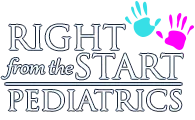 A concussion is a traumatic brain injury that occurs as a result of a blow to the head. Since concussions can be serious, it’s important that you’re able to recognize the telltale signs of a concussion so you can seek immediate treatment. While your pediatrician may be able to provide you with immediate treatment, any serious symptoms should be addressed right away at your nearest emergency room.
A concussion is a traumatic brain injury that occurs as a result of a blow to the head. Since concussions can be serious, it’s important that you’re able to recognize the telltale signs of a concussion so you can seek immediate treatment. While your pediatrician may be able to provide you with immediate treatment, any serious symptoms should be addressed right away at your nearest emergency room.
What can cause a concussion?
The majority of concussions in children occur while playing sports; however, a traumatic injury or accident such as a car accident or bad fall can also leave your child dealing with a head injury. Some concussions may lead to a loss of consciousness, but most of the time this isn’t the case.
What are the warning signs?
Some of the most common symptoms of a concussion include:
- Headaches
- Tinnitus (ringing in the ears)
- Nausea and vomiting
- Fatigue
- Dizziness or lightheadedness
- Drowsiness
- Loss of balance or unsteadiness
- Trouble with cognition, particularly attention, focus, and memory
A child may look dazed or slur their speech. They may also be more irritable and fussy, as well as sensitive to certain lights or noises.
If your child is alert and responds and acts normally these are often signs that the head injury is mild and probably won’t require emergency care; however, even if your child doesn’t require urgent care you should schedule an appointment to see your child’s pediatrician within the next 48 hours.
When is a concussion considered an emergency?
You should take your child to the ER right away if they develop these symptoms after a head injury:
- Persistent nausea or vomiting
- Loss of consciousness for more than 30 seconds
- A worsening headache
- Fluid draining from the eyes or ears
- Vision problems including dilated pupils
- Persistent tinnitus
- Weakness in the arms or legs
- Changes in behavior
- Slurred speech
- Trouble with coordination such as stumbling or falling
- Seizures
- Persistent dizziness or lightheadedness
- Disorientation
If your child is showing signs of a concussion, we understand how scary this can be. Don’t hesitate to call your pediatrician right away, who can advise you as to what next steps to take.








